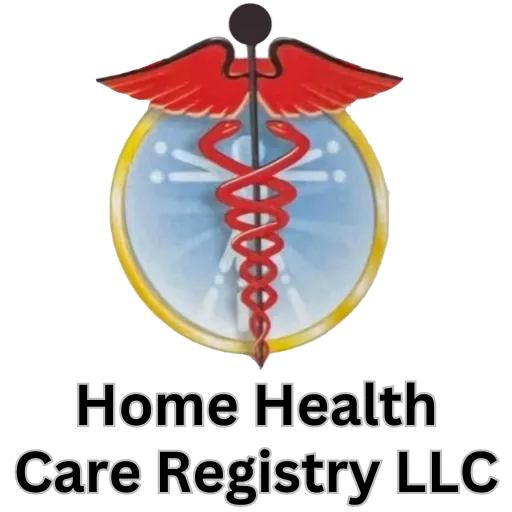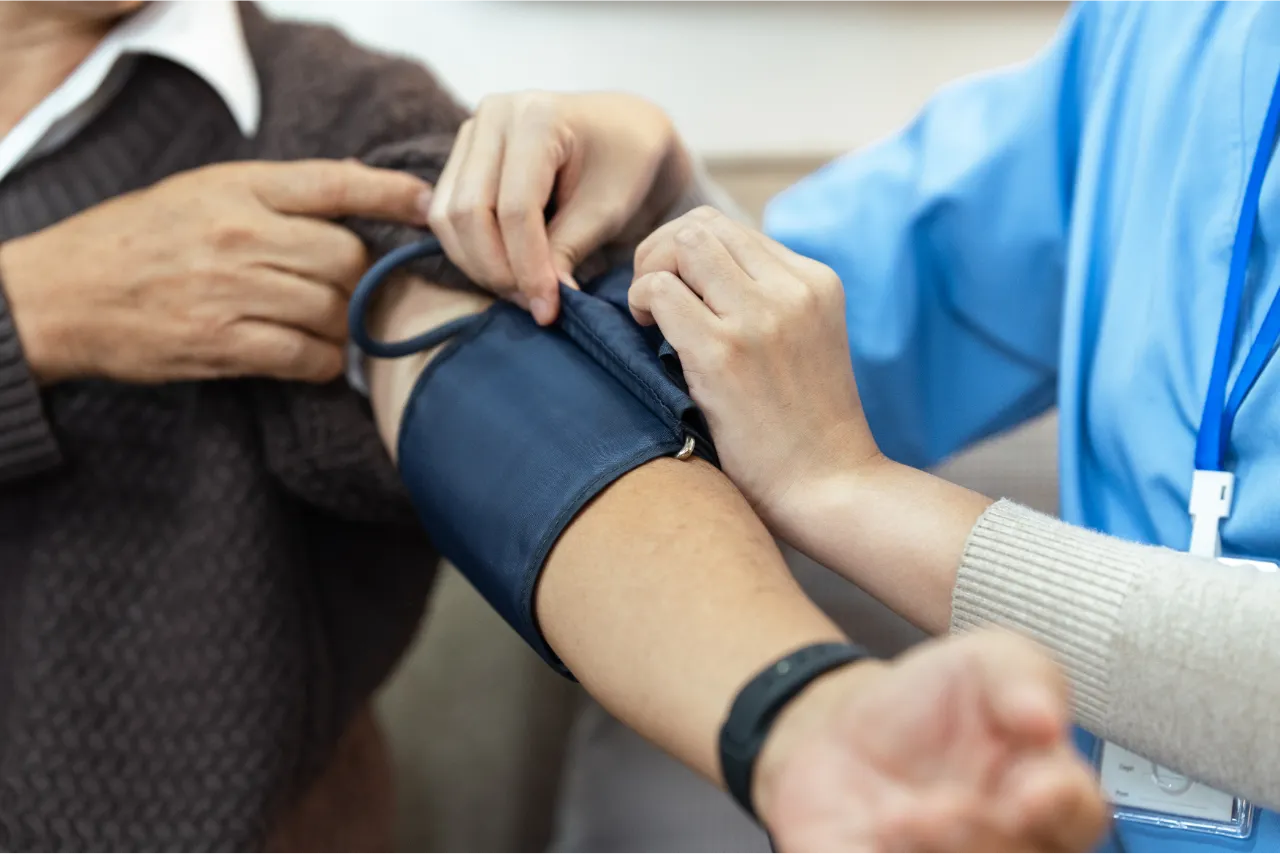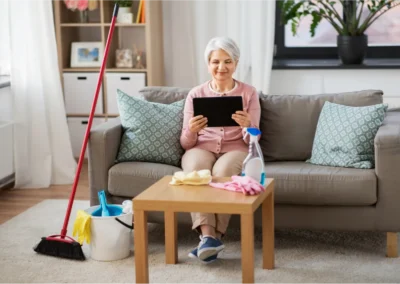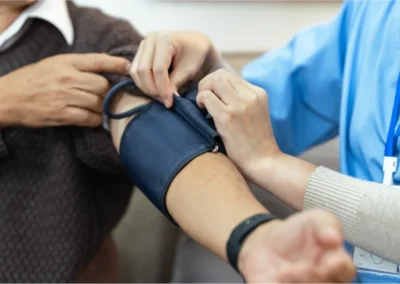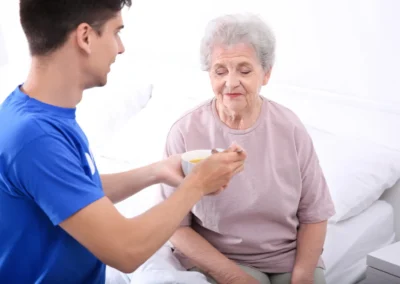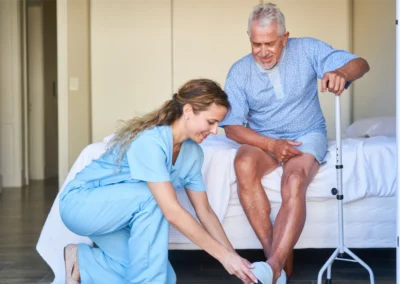The Vital Role of Monitoring Vital Signs:
1. Blood Pressure: A Window into Cardiovascular Health
- Importance: Blood pressure is a critical indicator of cardiovascular health. Regular monitoring helps detect any fluctuations that may indicate underlying issues such as hypertension or hypotension.
- Strategies: Regular blood pressure checks, especially for seniors with a history of cardiovascular conditions, can aid in early intervention and the development of personalized care plans.
2. Heart Rate: Monitoring Cardiovascular Function
- Importance: Heart rate, or pulse, reflects the efficiency of the cardiovascular system. Monitoring changes in heart rate can provide valuable insights into potential heart conditions or irregularities.
- Strategies: Periodic checks of resting heart rate and monitoring for variations during physical activity or stress can help in assessing cardiovascular health.
3. Respiratory Rate: Assessing Respiratory Function
- Importance: Respiratory rate measures the number of breaths per minute and is vital for evaluating respiratory function. Changes in respiratory rate may signal respiratory issues or other health concerns.
- Strategies: Regular observation of breathing patterns and respiratory rates, particularly during rest and activity, aids in identifying potential respiratory challenges.
The Benefits of Regular Monitoring:
1. Early Detection of Health Issues:
- Importance: Monitoring vital signs enables early detection of health issues, allowing for prompt intervention and the prevention of potential complications.
- Strategies: Regular check-ups, both at home and during healthcare appointments, provide a baseline for comparison and aid in spotting deviations from the norm.
2. Personalized Care Plans:
- Importance: Vital sign monitoring allows healthcare professionals to tailor care plans to address individual health needs, ensuring a targeted and effective approach to senior health care.
- Strategies: Regular communication between seniors, caregivers, and healthcare providers fosters a collaborative approach in developing and adjusting care plans based on monitored vital signs.
3. Managing Chronic Conditions:
- Importance: Seniors with chronic conditions, such as diabetes or heart disease, benefit from consistent vital sign monitoring as part of their ongoing management.
- Strategies: Integrating vital sign monitoring into routine care helps manage chronic conditions, facilitating timely adjustments to medications or interventions as needed.
Implementing Vital Sign Monitoring in Senior Health Care:
1. Home Monitoring Devices:
- Importance: Advancements in technology have made it possible for seniors to monitor vital signs at home, enhancing convenience and allowing for more frequent checks.
- Strategies: Invest in reliable home monitoring devices for blood pressure, heart rate, and other vital signs, and ensure seniors are trained to use them correctly.
2. Regular Healthcare Check-ups:
- Importance: Scheduled healthcare check-ups remain a crucial component of senior health care, providing a comprehensive assessment of vital signs and overall well-being.
- Strategies: Encourage seniors to attend regular check-ups with their healthcare providers, where professionals can conduct thorough examinations and address any concerns.
3. Education and Empowerment:
- Importance: Educating seniors about the importance of vital sign monitoring empowers them to actively participate in their health care and take charge of their well-being.
- Strategies: Provide information and resources that help seniors understand how monitoring vital signs contributes to their health. Encourage open communication about any observations or concerns.
In senior health care, monitoring vital signs emerges as a proactive and empowering practice. By regularly assessing blood pressure, heart rate, and respiratory rate, caregivers and healthcare professionals gain valuable insights into a senior’s overall health, enabling early detection and personalized interventions. Through the integration of home monitoring devices, regular check-ups, and empowering education, we pave the way for a future where seniors can age gracefully with the support of vigilant and personalized healthcare practices. In embracing the importance of monitoring vital signs, we prioritize the well-being and longevity of our cherished senior community members.
